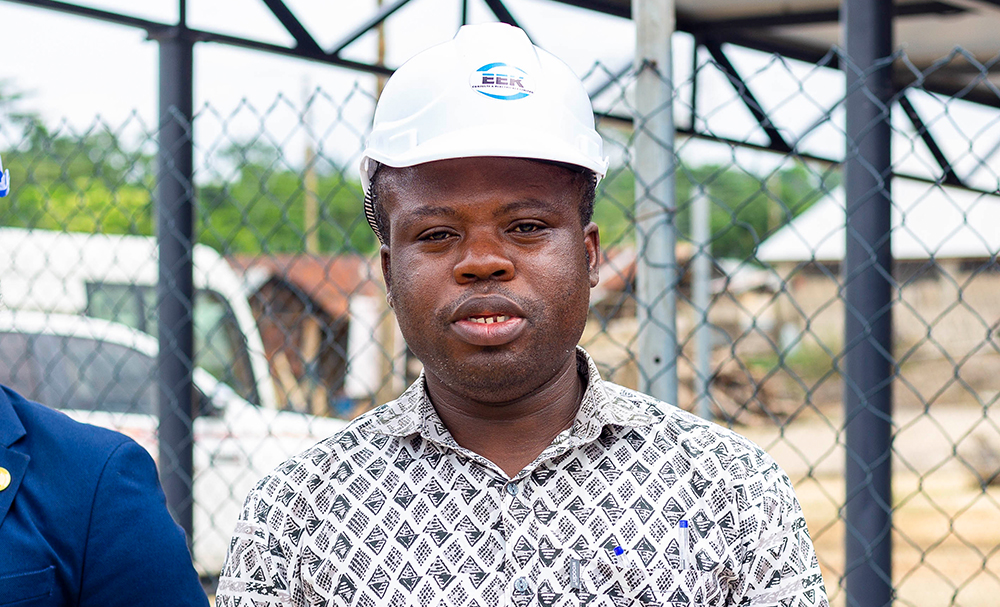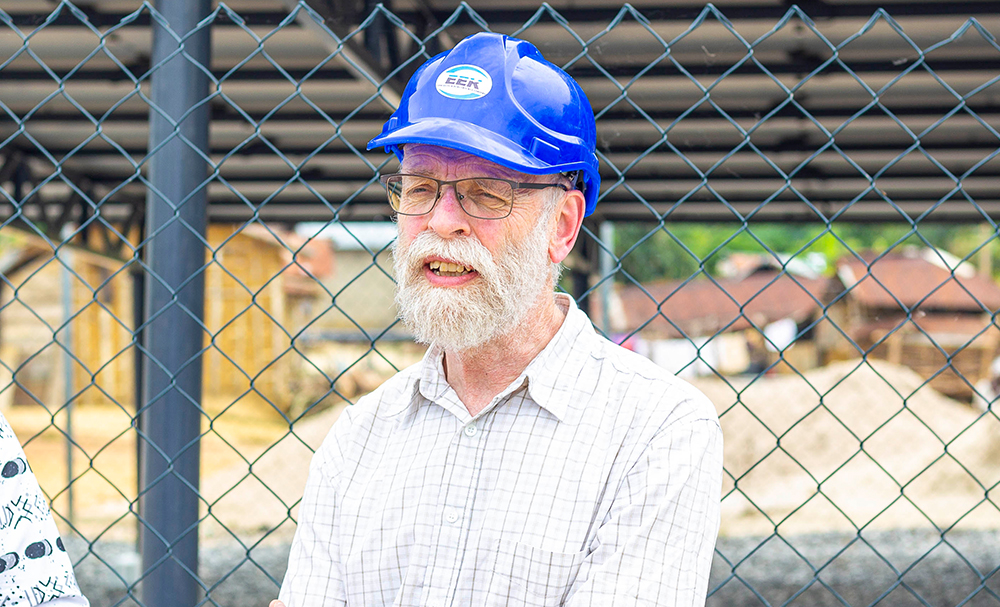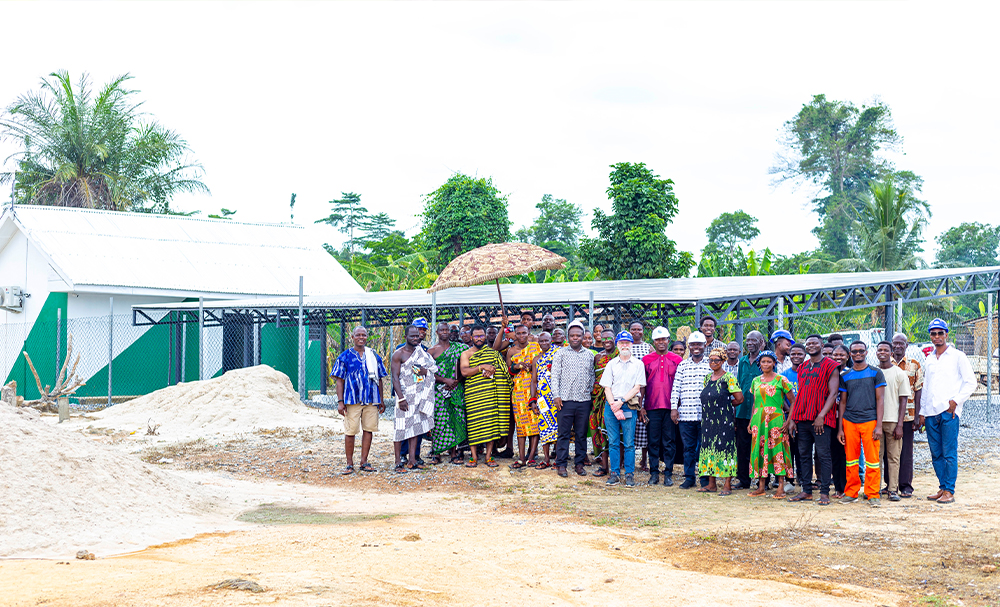The Ghana GOALS Project, under the Department of Mechanical Engineering at the Kwame Nkrumah University of Science and Technology (KNUST), has commissioned a 35 kW solar PV mini-grid facility with hybrid inverters and lithium-ion batteries at Onaa community in the Juaben Municipality in the Ashanti region.
The technical commissioning of the mini-grid facility took place on Tuesday, March 25, 2025, with various stakeholders attending the event.
The initiative, aimed at providing communities with access to electricity, has established a 35 kilowatt solar PV mini-grid system and a solar steam cooker for the Onaa community. The solar mini-grid facility aligns well with the Ghana GOALS Project’s broader mission to provide renewable solar energy to off-grid communities.
This is to support the global target of universal energy access to all by 2030. The Ghana GOALS project implementation was technically spearheaded by the Department of Mechanical Engineering at KNUST in collaboration with its partners Consortio Limited-UK, IBECCS Limited-UK, and EEK Consults and Electricals Limited, and with funding from the Innovate UK Energy Catalyst 9 Programme.

Ing. Dr. Richard Opoku, the technical lead at KNUST, revealed that the project was initiated when the team identified the community’s lack of access to electricity because it is very far from the nearest national grid access point.
“We had to establish the Onaa solar mini grid system and having done that for the past one year we now have a 35 kilowatt system which is providing electricity to their households." He stated. He added that, with the provision of electricity, some households have started businesses to support their livelihoods.
“Since its implementation, the project has provided street lighting and household electricity, enabling some residents to establish small businesses, thus improving their livelihoods”
Dr. Opoku highlighted the importance of community involvement in maintaining the project and urged residents to take collective responsibility for its security and sustainability.

Dr. Ian Byrne, the CEO of IBECCS Limited-UK, and a member of the project consortium, expressed satisfaction with the successful installation and underscored the project's long-term sustainability.
“We are very pleased with the installation completed by our colleagues at KNUST and EEK Consults. One of our primary concerns is ensuring sustainability. This project should not only support the community but also provide essential services for years to come. If the panels are well maintained, they should last between 30 and 40 years,” he stated.
The regent of Onaa community, Nana Agyei Agyeman I expressed gratitude to the team and partners for their commitment and dedication to the project.
He encouraged community members to actively contribute towards the maintenance and sustainability of the facility. He emphasized the need for ownership and collaboration to protect this valuable resource.
Aunt Akoto, a resident recounted how the provision of the solar mini-grid project at Onaa has been instrumental in the efforts to help provide electricity and economic development opportunities. According to her, the solar mini-grid project has facilitated economic opportunities and empowered them to establish various businesses.

















